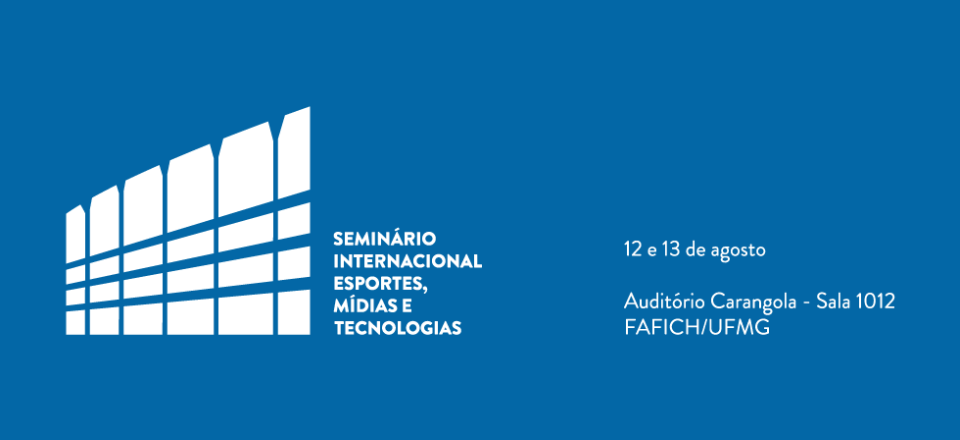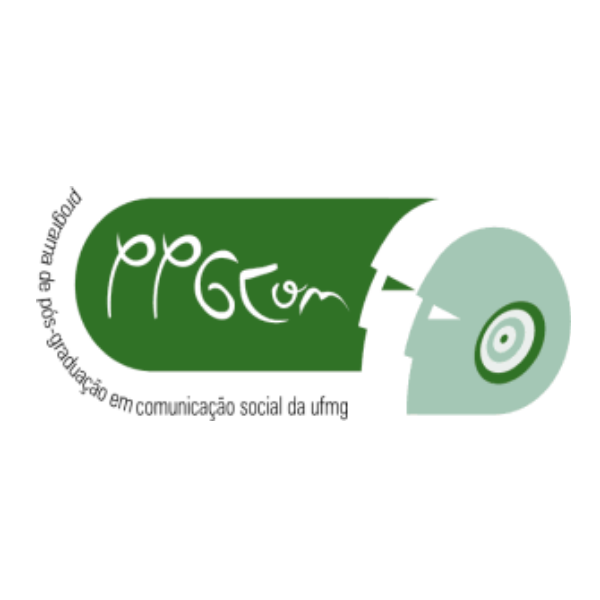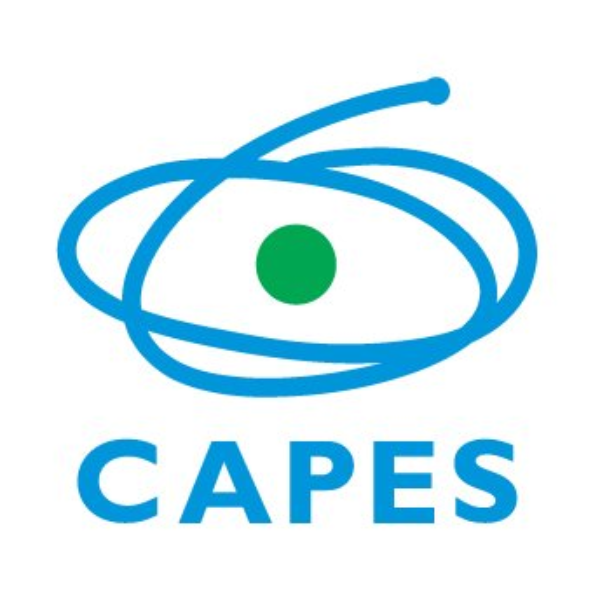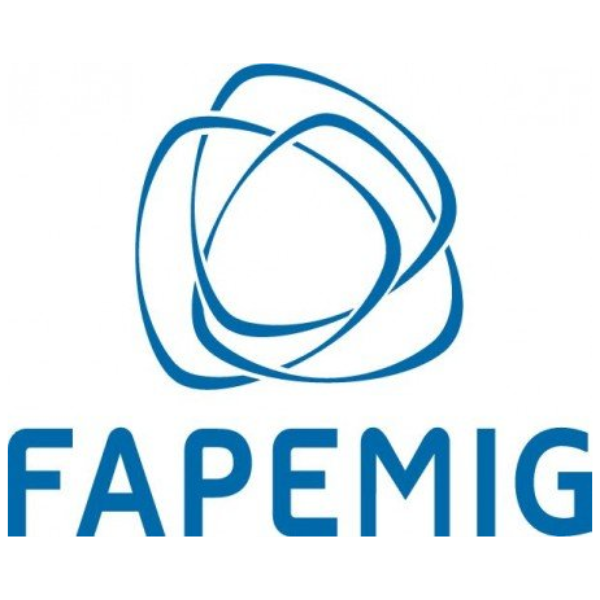English
The first edition of the International Seminar on Sports, Media and Technologies will be held at UFMG, on 12 and 13 August 2019. With free registrations, the event will bring together researchers from Brazil and abroad for discussions on themes such as Big Data and sports, social media and audiovisual culture, supporter practices and Video Referee (VAR).The event is promoted by the Graduate Program in Social Communication (PPGCOM) of UFMG and the research groups R-EST - studies of sociotechnical networks and Coletivo Marta (Research Group in Communication and Sporting Cultures).
Programme
12/08 | 19h-21h30
Opening Conference: Expecting Goals. The Big Data Discourse in Sports
Markus Stauff - University of Amsterdam (UvA), The Netherlands
“Big Data” can mean a lot of things and activates a heterogeneous set of practices and technologies. In any case, it involves epistemological claims and re-organizes established hierarchies of knowledge and expertise. Its wider cultural impact therefore is dependent on both, often black-boxed procedures and the often contentious performance of its values and insights. In this context, this paper aims to develop two major claims: (1) Big data’s increasing relevance across a number of otherwise pretty different social areas and cultural practices is accompanied by the emergence of a big data-discourse that selectively translates the specialists’ knowledge into common language. The discussion of big data’s politics, its merits and downsides is structured by this discourse - which therefore needs to be critically analysed. (2) The growing application of big data in competitive sport and its discussion in popular media can be considered a key generator of this big data-discourse for at least two reasons: (a) Sport has always combined specialised knowledge forms (of fans and experts) with popular media narratives and thus contributed key elements to (post-)industrial societies concepts of competition and subjectivity; (b) because of sport’s public comparison of performance and its systematic partisanship, gives special incentives for the use and critical evaluation of big data procedures. After discussing the more general characteristics of sports’ big data-practices the paper will focus on the “expected goals” metrics in football to critically analyse its discursive productivity: How do the epistemological claims, the data visualizations, and the controversies on social media surround this metrics contribute to a wider understanding and the legitimacy of big data?
13/08 | 9h-11h30
Roundtable 1: Sporting cultures and supporter practices
Moderator: Silvio Ricardo (Gefut/EFFETO/UFMG)
Women commenting football? Supporters' media projects and the production of counter-hegemonic representations of women in sport
Ana Carolina Vimieiro (UFMG, Brazil)
The massification of self-publishing tools, enabled by what is usually called Web 2.0, has boosted in the last two decades the creation of many media projects by football supporters in Brazil (Vimieiro, 2014, 2015, 2018). Certainly, the Internet has not created the conditions for the emergence of such a phenomenon, since fans have engaged in media practices such as fanzines, photographic records, flags and banners, and even urban inscriptions like graffiti at least since the mid-twentieth century in Brazil. However, it is noticeable that there is a broadening of the subjects that have a voice and access to cultural production in contemporary times, with some of these projects achieving great visibility among the supporter cultures of their respective teams. In previous works, the different formats and perspectives adopted in media projects of Brazilian fans were explored. From digital radios to YouTube channels with original production, these projects generally produce the reversal of the narrative structures of conventional media, with the supporter becoming the protagonist of the stories. In this talk, I will specifically analyse media projects led by women in Minas. I will address two recent initiatives: the Marias' Podcast, made by Cruzeiro fans, and the Grupa's podcast, a collective of women who supports Atlético. Among the contributions of these two projects is the production of counter-hegemonic representations that, above all, question the still dominant stereotype that women do not have the ability to speak in technical terms about football.
"I'll be on the stands so I get more thrilled": Sonic Techniques and the production of sports performance in football matches
Pedro Marra (UFES, Brazil)
This research aims to listen to a football game in order to understand it as performance in which a match and groups of fans constitute each other during the sports dispute. It elicits the principle of sound as an affective mediation, the movement of a body that makes other bodies vibrate in consonance, undertaken by a dual artifact, both a force and a text. From audio recordings of 21 matches at Clube Atlético Mineiro in field work conducted between 2008 and 2015, we sought to grasp the sonic techniques - sets of practices and protocols which employ and modulate sound vibrations in order to achieve some accomplishments - employed by fans in the arenas to, among others: articulate and disarticulate the audience, dispute space in the stands, express feelings regarding the team and the opponent, affect the athletic performance of the players and referees in the pitch and regulate the temporalities of both matches and the sports season. In these sonic dynamics, fans and teams reenact the stories and myths around the club, what sometimes assume a magical character, since those techniques involve an excessive belief in their efficacy, and other times they reproduce forms of violence - sometimes legitimate - that cross society, such as patrimonialism, patriarchy, machism and misogyny. Thus, football, more than a mirror of society, sounds and resounds such tensions, presenting itself as a privileged space for listening to those issues.
Working with Big Data and Machine Learning: Classification of Sports News and the ‘National’ Sporting Cultural Bias
Renan Petersen-Wagner (LBU, United Kingdom)
As argued by Niklas Luhmann (2000) what we know about society, and indeed about the world that surrounds us, we know through mass media. Luhmann’s (2000) perspective finds echo on Herman and Chomsky’s (1992) notion that mass media communication operates through five concomitant editorial biases. Building upon the notion of sourcing bias (Herman and Chomsky, 1992) I argue in this paper that sport, by its inherent quality of being a cheap content that provides real human drama (see Rowe, 2004; Jackson, 2013), fabricates what I conceptualise as the ‘national’ sporting cultural bias. My argument derives from automatically classifying through machine learning news from 12 different media outlets from around the world. During April to August 2019 I have automatically collected (predicted based on my first month collection) 80,000 news that were then classified based on the topics covered. Early findings show that those news outlets operate on what I conceptualise as the ‘national’ sporting cultural bias by heavily focusing on particular sports that shapes readership perception of the nation's sporting culture.
13/08 | 13h-14h30
Roundtable 2: Between the field and the media: the Video Assistant Referee in football
Moderator: Elton Antunes (PPGCOM/UFMG)
Television broadcasts of football in an epistemological crossroad: the VAR as a cultural technique
Márcio Telles (UFES, Brazil)
VAR technology emerges at an epistemological moment that values the increasing technologization of forms of knowledge (such as Big Data), which also leads to Chris Anderson's (2008) proposal for an "end of theory". This obsolescence of the human in exchange for a "more than perfect" machine is inimical to previous understandings of sports refereeing and ends up breaking the "fourth wall" between events in the playfield and the spectatorship. From this point of view, that is a movement toward increasing media disruption (especially television) of sports, enhancing the complexity of the relationship between media and sport, and the mediatization of the latter. Using the recent theoretical and methodological considerations of Kulturtechniken, which questions the epistemological limits as a consequence of media technologies, this paper aspires to debate the contemporary epistemology that conceives the sports as a television effect.
Between technical artifacts and the media dispositif: the case of the "video assistant referee" in football
Carlos d’Andréa (UFMG, Brazil)
The aim of the study is to investigate the articulations between technological artifacts inserted in sports practices (such as the video referee) and the ways in which they are incorporated by the media dispositif that supports the transmission and circulation of sports events. We understand that the introduction of new technology media reconfigures not only the performance of referees, players and other actors directly involved in the matches, but also modifies the media dynamics, the audiovisual transmission and the supporters / audience experience, including their performance on online platforms such as Twitter. The research approach is based on dialogues between Media Studies and Science and Technology Studies. The empirical study is focused on the specificities of the video assistant referee (VAR) implementation in three football competitions held in 2018: the FIFA World Cup, the Libertadores Cup and the Brazil Cup.
13/08 | 15h-17h00
Roundtable 3: Sports and audiovisual: contemporary dynamics
Moderator: Fernanda Maurício (PPGCOM/UFMG)
Is the Television the Window of the Sporting Event?
Tatiana Ushinohama (UFF, Brazil)
The sports broadcast is an entertainment television program with the functional role of communicating the actions of the game simultaneously to its distribution in a mediated experience. In this context, the purpose is to expose how the technical issues of the medium interfere in the audiovisual narrative sportive construction in order to deconstruct the illusion of transparency present in the idea of television being the window to the world. In this process of mediation, the transmission elaborates an audiovisual representation of the event that is concerned with the nature and form of this intervention and the way in which it patterns communication.
The online broadcasting of surfing World Tour events
Rafael Fortes (Unirio, Brazil)
For the past few years, the events of professional surfing World Tour⸻in its two versions, one disputed by men and another by women⸻of the World Surf League have been broadcasted integrally and free through the internet. The paper addresses this broadcats’ general features and structure. As in any other sport, its production is based on technological determinants and it establishes connections with characteristics of that specific sport. Finally, I point out similarities and differences in relation to "traditional" broadcasting formats.
Transmedia coverage of sports mega-events: methodological proposal
Lorena Tárcia and Geane Alzamora (UFMG, Brazil)
We analyze the transmedia perspective of the journalistic coverage of the Sochi Winter Olympics (2014) and Rio de Janeiro Summer Olympics (2016). The theoretical framework focuses on transmedia journalism, which is characterized by the involvement of (1) multiple media platforms, (2) content expansion and (3) public participation. The methodology is based on the analytical model of transmedia coverage of planned mega-events developed by Gambarato and Tárcia (2016). The results of the research (Gambarato, Alzamora and Tárcia, 2016a and 2016b) show that, although digital technologies contribute to content expansion across multiple platforms, the existence of a rigorous set of rules and regulations imposed by the International Olympic Committee (IOC) athletes, coaches, employees, and media organizations, among others, deliberately interfere with the transmedia dynamics of such multifaceted coverage.
Denúncia enviada com sucesso!
Denunciar este evento
Por favor, descreva abaixo a razão da sua denúncia.













